The Haines Family Lectureship on Clinical Research in Neurosurgery
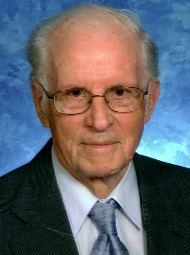
The Haines family has a long association with the Department of Neurosurgery at the University of Minnesota. The late Gerald Haines (pictured at left) came to the University of Minnesota to begin his residency training in neurosurgery in 1949 after serving in the Army in World War II. He completed his internship at Worcester City Hospital in Massachusetts and a year of pathology training at the University of Vermont. Dr. Haines finished his residency training in 1953, having done course and experimental work in pursuit of the PhD in Neurosurgery. He spent one year at the Montreal Neurological Institute under the tutelage of Wilder Penfield and William Cone. After completing training in 1953, Dr. Haines entered the practice of neurosurgery in Schenectady, NY. During the early years of his practice, he completed a PhD dissertation titled, “Studies on the Blood-brain and Blood-liquor Barriers by Radioisotope Methods,” and was awarded his degree in 1959. His dedication to the science of neurosurgery must have made a great impression on his son, Stephen, who followed in his footsteps many years later.
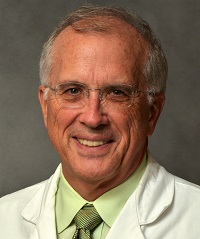
Following in his father's footsteps
Stephen Haines, born the year his father began neurosurgical residency, followed his father to obtain an MD degree at the University of Vermont, where the Haines family had deep roots. His surgical internship at the University of Minnesota was followed by residency training at the University of Pittsburgh and a period of study under the auspices of the Van Wagenen Fellowship of the American Association of Neurological Surgeons in Oxford, England. In 1982, Shelley Chou, a 1955 graduate of the residency program who became Head of the Department in 1974, brought Dr. Haines onto the faculty where he rose to the rank of Professor in 1993. In 1997, he assumed the position of Professor and Chair of the Department of Neurological Surgery at the Medical University of South Carolina. In December 2003, the pull of Minnesota brought him back to the department as the Lyle A. French Chair, Professor and Head of the Department of Neurosurgery.
Focus on scientific investigation
Both Drs. Haines are devoted to applying the principles of scientific investigation to the practice of neurosurgery. Stephen’s work in the application of clinical trials methodology to clinical neurosurgery and subsequently to the field of evidence-based neurosurgery, brought international recognition to the U’s Department of Neurosurgery as a leader in this field. In 2011, to recognize the importance of this subject, bring outstanding practitioners of high quality clinical research to the department, recognize the visitor’s accomplishments and stimulate more high quality clinical research, Drs. Gerald and Stephen Haines endowed the Haines Family Lectureship in Clinical Neurosurgical Research. The lecture will bring a recognized authority to the department each year to interact with residents and faculty and give a lecture to the Minnesota neurosurgical community.
2023 Lecture: September 21-22, University of Minnesota Campus Club, Coffman Union, featuring David Limbrick, MD, PhD: "The Life of a Trialist Neurosurgeon"
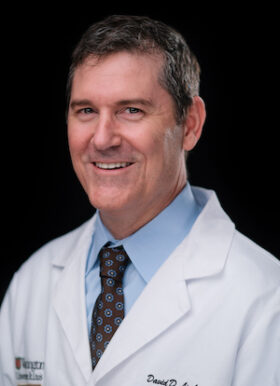
Pediatric neurosurgeon Dr. David Limbrick is Executive Vice-Chair of the Department of Neurosurgery and Chief of the Division of Pediatric Neurosurgery at Washington University in St. Louis, MO.
"As a pediatric neurosurgeon, my most rewarding experience is developing long-term relationships with my patients and watching them grow into adults with their own interests and fulfilling lives. It just feels like family," he noted on his University bio page.
Dr. Limbrick completed a BS in Biology at the College of William & Mary in Williamsburg, VA, and his MD, MS, and PhD at the Medical College of Virginia, Virginia Commonwealth University in Richmond. He completed his residency in neurosurgery at Barnes-Jewish Hospital and Washington University School of Medicine in
St. Louis.
Following graduation, he served as Senior Registrar in Neurological Surgery at Beaumont Hospital in Dublin, Ireland. He then completed a fellowship in Pediatric Neurological Surgery at St. Louis Children’s Hospital and Washington University School of Medicine.
His research work focuses on Chiari malformation, syringomyelia, hydrocephalus, traumatic brain injury, brain tumors, advanced imaging, multicenter research, and clinical trials.
Previous Lectureships

May 15, 2022: Sepideh Amin-Hanjani, MD, FACS, Professor, Residency Program Director & Co-director, Neurovascular Surgery, University of Illinois College of Medicine, Chicago: "Clinical Research Training in Neurosurgery: What, Why and How."
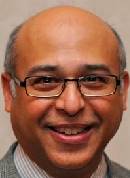
September 6, 2019: Zoher Ghogawala, MD, FACS, Charles A. Fager Chair of Neurosurgery at Lahey Hospital and Medical Center in Burlington, MA, and Associate Professor of Neurosurgery at Tufts University School of Medicine in Boston. His topic, "Generating Neurosurgery Evidence: RCTs, Registries, and now AI."
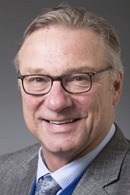
September 29, 2018: Timothy C. Ryken, MD, MS, FACS, FAANS, professor of Neurosurgery for the Geisel School of Medicine at Dartmouth in Hanover, NH. His lecture was titled, "Neurosurgical Translational Research: Asking Good Questions – Using Good Data."
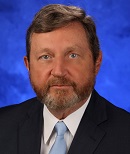
March 23, 2018: Robert Harbaugh, MD, FACS, FAHA, University Distinguished Professor and Director, Penn State Hershey Neuroscience Institute. His lecture was titled, "The Science of Practice: A New Algorithm for Clinical Research and Quality Improvement in Neurosurgery."
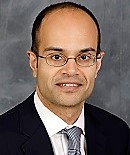
November 11, 2016: Abhaya Kulkarni, MD, MSc, PhD, FRCSC, staff neurosurgeon at the Hospital for Sick Children in Toronto, Ontario. His lecture was titled, "Multicenter, International Collaborations in Hydrocephalus: Lessons Learned and the Way Forward."
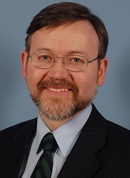
August 7, 2015: Cormac Maher, MD, Associate Professor, Neurological Surgery, University of Michigan, Ann Arbor. His lecture was titled, "What We Don't Know (but really should know) About Chiari Malformation."
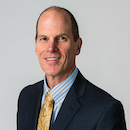
July 18, 2014: John R. W. Kestle, MD, Professor of Neurosurgery and Vice Chair, Clinical Research, Department of Neurosurgery, University of Utah. His lecture was titled, "Hydrocephalus: Trials and Tribulations."

July 12, 2013: Frederick G. Barker, II, MD, tumor neurosurgeon, Massachusetts General Hospital; faculty member, Harvard Medical School. His lecture was titled, “Opinion-based Neurosurgery: How Neurosurgeons Decide When Evidence is Lacking.”

July 27, 2012: Beverly C. Walters, MD, MSc, FRCSC, FACS, in conjunction with the Peyton Society meeting and the 75th Anniversary Celebration of the Neurosurgery Department. Her lecture was titled, "Adventures in Evidence-based Neurosurgery."